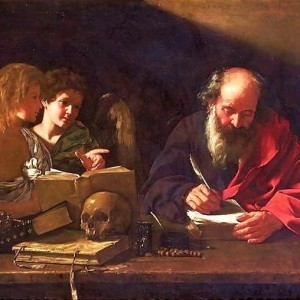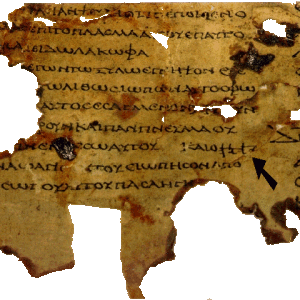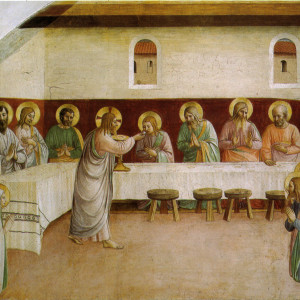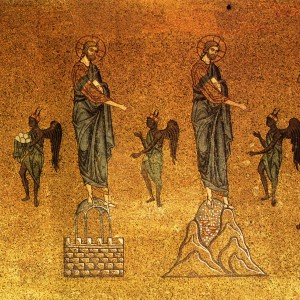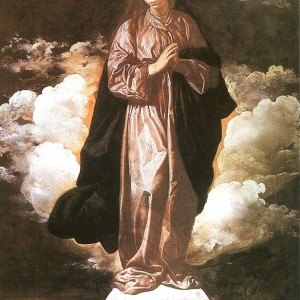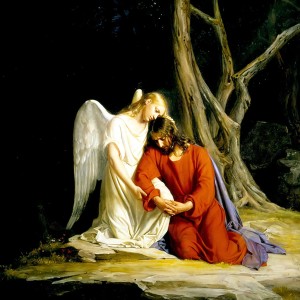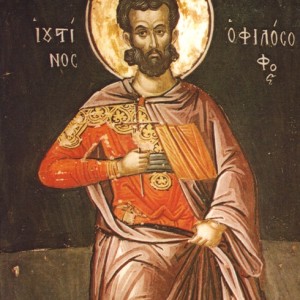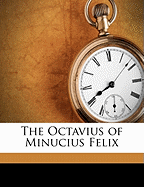What canon of Scripture did the earliest Christians use? A Protestant going by the handle Lojahw (Lover of Jesus and His word) argues that it was the modern Protestant Bible. Specifically, he claimed that: Bartolomeo Cavarozzi, St. Jerome in His Study (1617) There were at least nine church fathers from the second through the fourth centuries… Continue reading Which Books Were in Early Christian Bibles?
Tag: ECFs
Did the Greek Old Testament Include the Catholic Deuterocanon?
Fragment of the LXX A reader e-mailed to ask about the use of the Septuagint (or LXX), the Greek version of the Old Testament used by the Jews at the time of Christ, and by the early Christians. This reader had encountered Protestants claiming that while the early Church used the LXX, this didn’t include the Deuterocanon.… Continue reading Did the Greek Old Testament Include the Catholic Deuterocanon?
Mark Driscoll and the Canon of Scripture
Mark Driscoll Popular Protestant pastor Mark Driscoll (of Mars Hill church) thinks we Catholics have too many Books in our Bibles. That’s no surprise; almost all Protestants think this. But thankfully, Driscoll takes the time to explain why he thinks this, which makes it easy to show where and how he’s wrong. If you’re not familiar,… Continue reading Mark Driscoll and the Canon of Scripture
“Do You WANT The Eucharist to be True?”
This past Sunday, an Evangelical friend joined me for Mass (he’d lost a bet). Mass was at St. Mary’s in Alexandria, and it was characteristically great: there was a solid homily about the need to take Jesus as Eternal Judge seriously, good music, a palpable reverence during the Liturgy of the Eucharist, and the works. My friend… Continue reading “Do You WANT The Eucharist to be True?”
Virtuous Friendships: What They Are, Why They Matter
Last night, I attended a talk put on by Christopolis, an Arlington-area Catholic young adult group affiliated with the Dominicans. The talk was part of their “Growing in the Spiritual Life” series, and was called, “Without Friends, Life Would Hardly be Worth Living: Friendship and Holiness,” and the presenter was Sr. Ann Catherine, O.P. As… Continue reading Virtuous Friendships: What They Are, Why They Matter
Where Does Lent Come From, and Why Do We Celebrate it?
Where does Lent come from? How quickly did the Church start celebrating Lent? Why is it forty days? Was it always this long? What role have the popes played in fixing the Liturgical calendar for Lent and Easter? Many of the answers to these questions are found, or at least hinted at, in a recent… Continue reading Where Does Lent Come From, and Why Do We Celebrate it?
Are the Immaculate Conception and Assumption Post-Reformation Innovations?
Diego Velazquez, Immaculate Conception (1618) An Anglican reader with a love for Mary described her concerns about the doctrines of the Immaculate Conception and the Assumption: I appreciate that Mariology grounds our understanding of Christ’s human nature, and that without her assent the incarnation could not have happened. We should call her blessed. Out of obedience… Continue reading Are the Immaculate Conception and Assumption Post-Reformation Innovations?
Does the Bible Condemn Repetitive Prayer?
One of the common arguments raised against Catholic devotions like the Rosary is that Catholics are praying the same few form prayers over and over again, and Scripture condemns repetitive prayer. After all, in Matthew 6:7, Christ says, “And in praying do not heap up empty phrases as the Gentiles do; for they think that they… Continue reading Does the Bible Condemn Repetitive Prayer?
Early Church Fathers on Mary as the New Eve
Last week, I talked about how Mary is presented in Scripture as the New Eve, through a number of remarkable parallels. In that post, I quoted St. Irenaeus, who wrote in 180 A.D. about what he called “the back-reference from Mary to Eve,” namely, that “the knot of Eve’s disobedience was loosed by the obedience of Mary.… Continue reading Early Church Fathers on Mary as the New Eve
The Eucharist in the Early Church, Through Non-Christian Eyes
One of the things I’ve pointed out before is that the writings of the Church Fathers are devoid of (1) Church Fathers teaching something contrary to Transubstantiation on the Eucharist, and (2) Christian objections to Transubstantiation by taught by certain Church Fathers. That is, all of the Church Fathers can be lumped into “clearly Catholic,” or “hard to… Continue reading The Eucharist in the Early Church, Through Non-Christian Eyes
